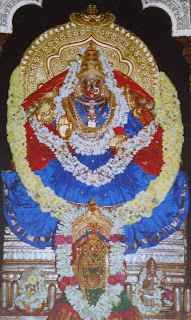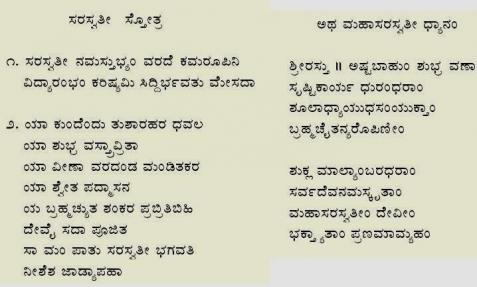The Goud saraswat Brahmins wherever they migrated mingled with the local people, but kept their identity by their Surnames even today. The most popular surname among GSBs is Kamath Those in agriculture were called Kamathi. Mathi means soil and Kama is work, that is working in soil ( Kama + Mathi). Later this became Kamath.
The surnames of GSBs are mainly two types.
1. The village names of Gomantak where they settled originally or migrated. This practice is prevalent among Rajapur saraswats. They have surnames like Salkar, Asgaonkar, Bandivadekar, Madkaikar, Borkar, Sakhalkar, Sawerdekar, Haldwanekar, Chimbalkar, Navelkar, Marathe, Lotlikar, Salwankar, Karlekar, Burake, Bhagav,Bhatkar, Tendulkar, Patkar, Juvale, Dhonde, Shinkar, Shendre, Shetye, Bokade, Takur, Gawade, Potkar, Askekar, Shenai, Gavalkar, Shembekar, Lanjolkar etc. which are the original local village names of Gomantak. The word 'Kar" means "From" or citizen of. Thus kakodkar means person from village kakod. Kar is also a surname of viswabrahmins of bengal. This enabled one to identify the profession and the domicile.
2.
- Surnames indicating the profession adopted by the Saraswats like Pai, Purohit, Nayak etc.
- Shenoy- Originally for the Shenvis in Goa. Since most of them took up Administrative jobs they were called Shanbhags (clerks) which later became Shenoy.
- Pai- Pai in Konkani language means foot or leg. The common person who had not amassed wealth or power was known as Pai.Their job was menial in maintaining ledgers and doing odd jobs. The Pai who was mainly ledger keepers.
- Kamat - Those in agriculture were called Kamathi. Mathi means soil and Kama is work, that is working in soil ( Kama + Mathi). Later this became Kamat.
- Keni, Kini- Those who cultivated herbs were Kinvis, presently called Kini or Keni.
- Vaidya- Those who prepared the concoction was prepared and dispensed it
- Hegde- The animals required for tilling, transportation and other works were under Haya- Gade (actually Horse tenderer), modernized to Hegde.
- Nayak, Rao- Those worked as Army commandants were called Nayaks. Some Nayaks who were honoured by the King with titles like Ravubahadur adopted Rao as their Surname
- Baliga - The daily requirements of every family for survival, presentations, etc. were the responsibility of the Ballo. There is another theory that the foot soldier with a spear was called Ballo. The soldier Ballo (Baliga) was under the command of Nayak.
- Prabhu - Feudal lords called themselves Prabhu. He lived in a palatial home called mahal, and the caretaker was known as Mahalyar, presently modernized to Mallya.
- Acharya, Bhat and Vadhyar- The poojas in the big temple and its rituals were under Acharya, and in small temples conducted by Bhat. Every family had exclusive priest to perform the rites, and he was the family Purohit and was called Vadhyar.
- Mahajan- The temples were administered by Mahajans
- Bhandarkar- Stores and godown keepers were called Bhandari or Bhandarkar.
- Nadkarni, Kulkarni- A person maintaining statistics was called Karni. Land was called Nadu, and the person maintaining land records was known as Nadkarni, and Kulkarni maintained census, and social register.
- Bhakta - Doing odd jobs in temples and poojas.
In Karnataka, the village of refuge was used as a prefix to call oneself Padbidri Mohandas Prabhu, or Kinnigoli Ramanath Kamath. The kerala civilization induced the name of the house or the exact area rather than the village, and in some places, the present profession was also added to the name. So we have today, Thayyil Muralidhar Kamath (Thayyil means tailoring house), or Kannaparambil Gopalakrishna Pai (Parambil means garden or farm belonging to kannan).
Today the name has no links with the profession. However the GSBs still retain their Surnames down the generations.
[4][5]
Courtesy : Wikipedia


